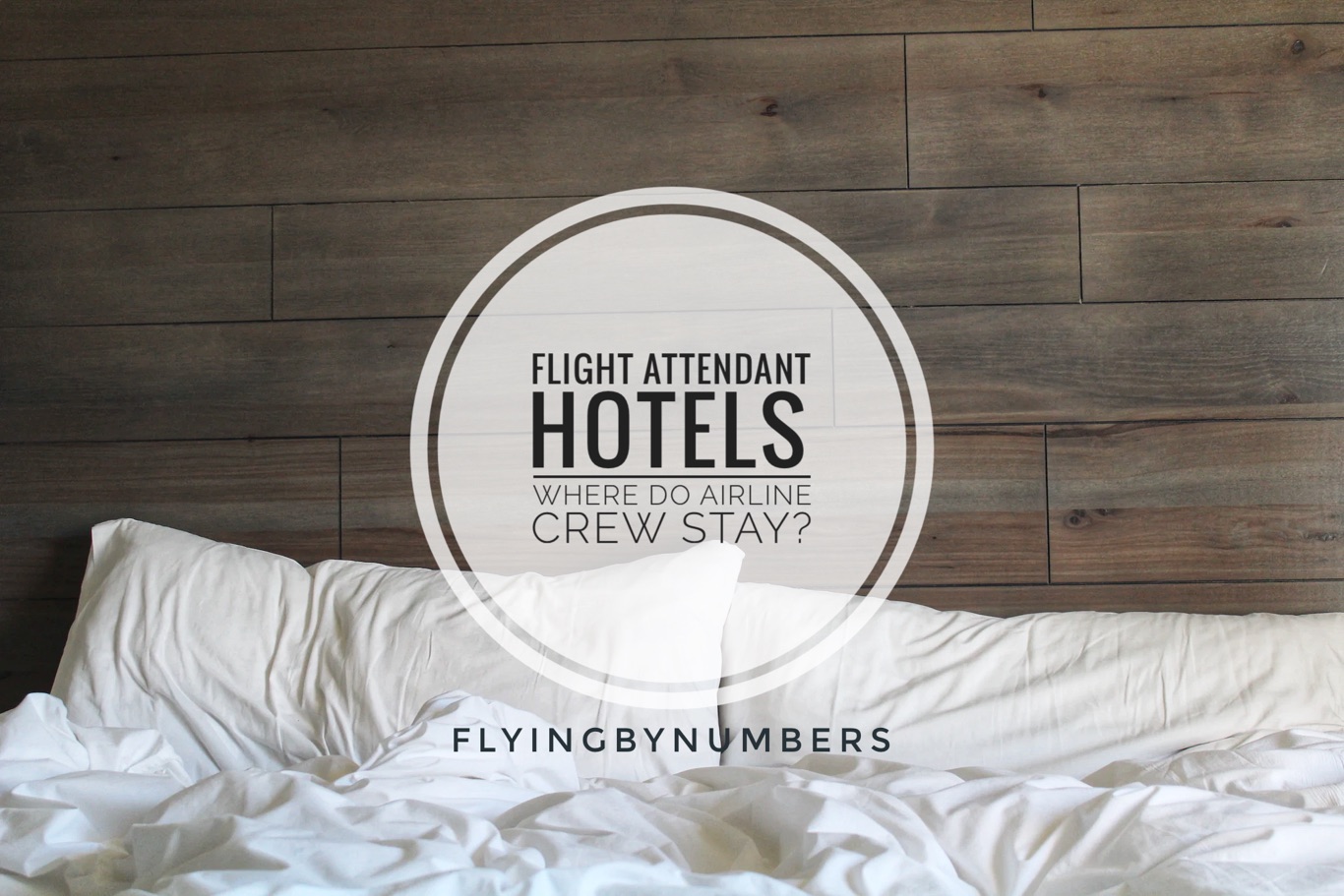Flight attendants have to stay in specific hotels while on their layovers. Crews need a place to rest and relax, so they can be fresh for their next flight.
But what are the requirements for a hotel that airline crew stay in? How do airlines choose hotels for their crews? And do flight attendants pay for their own rooms?
We’ll take a look behind the scenes and answer these popular questions. Some answers to questions — like, do flight attendants have to share rooms — might surprise you!
5 things airlines look for when booking hotel rooms
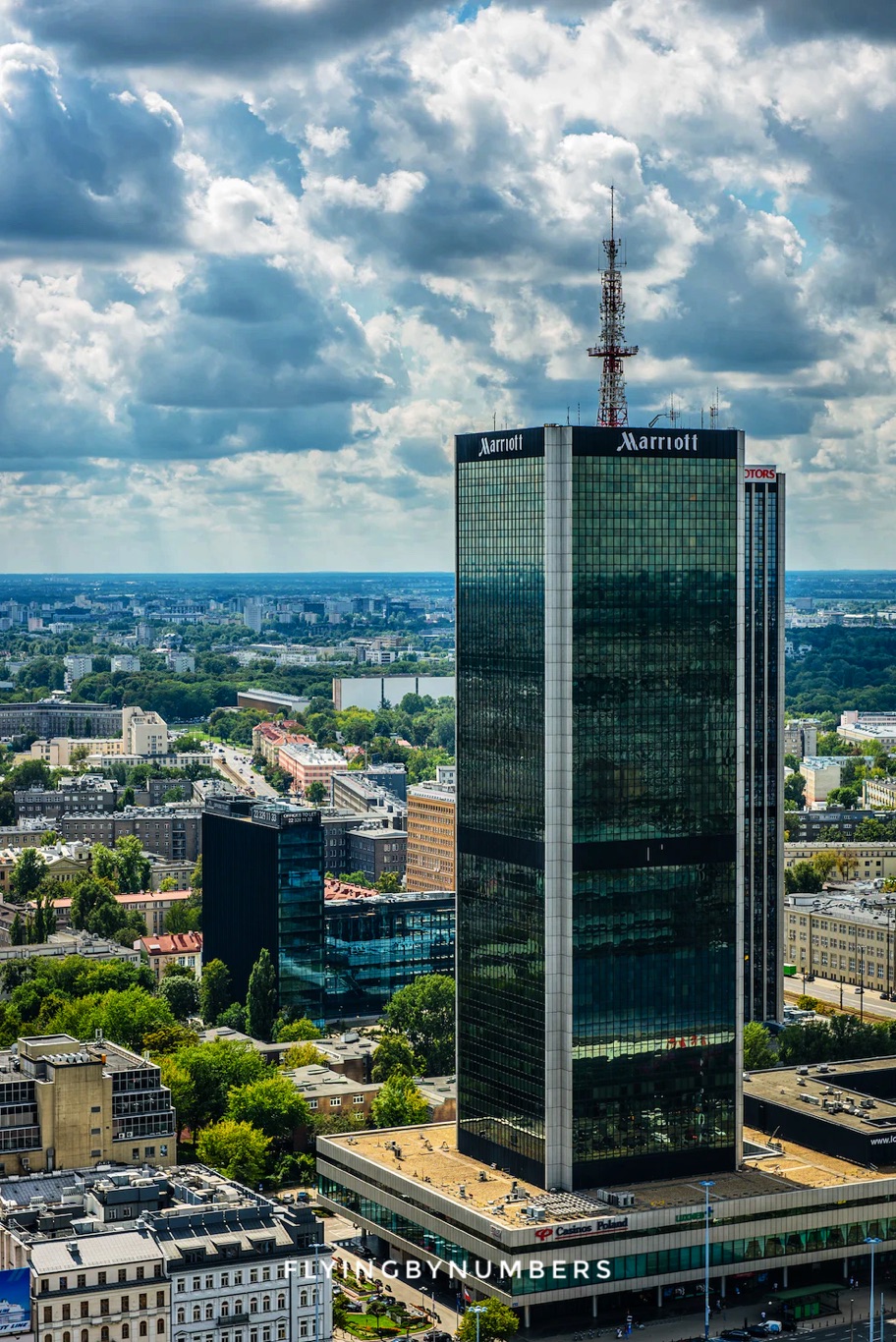
Room capacity
Airlines tend to trend towards the major hotels brands for one main reason, capacity. Flight attendant hotels have to have a huge number of rooms available for them, with airlines often booking between 10-100 rooms a night for 12 months at a time. The airline industry also demands the flexibility to increase the number of rooms at short notice, on a weekly, and sometimes even daily basis.
Considering small to medium-sized routes, with only 2-3 flights per day, airlines potentially require 2 layover crews in the hotel at any one time. Even with a smaller longhaul aircraft, such as a 787, this can involve 12 cabin crew and 2-4 pilots staying overnight per aircraft.
Unlike families or holiday travellers, airlines need one crew room per flight attendant, and will not want to pay for boutique or top-end hotel rooms. As a result, any hotel on an airline shortlist will require at least 30 similar standard rooms, and the ability to handle last-minute changes. This rules out many independent and boutique hotels, leaving large hotel chains with the majority of their custom.
24-7 room service
For all by the most organised travellers, I doubt many people pay much attention to the room service menu before booking a hotel room! Surprisingly, this is a top requirement for airlines when choosing hotels for airline crew.
Maximising flying schedules, pilots, and flight attendants often arrive and depart hotels at very awkward hours. Arriving late at night and departing between the hours of 3–5 am are common at many destinations. However, regardless of the time, airline crew are required to be fit and rested and able to operate very long days at work.
This can mean anything from trying to sleep in the middle of the day, to eating in the middle of the night. As a result, they need to be able to order food at any time, so 24-7 room service is a mandatory requirement for most airlines.
Safety and security
Within any large corporation, there will always be a risk and compliance manager! Airlines are no different. On personal holidays, I would decide to stay at downtown hotels or those “near-the-action”. It is a risk I’m personally willing to take. However, airlines tend to have different versions of risk for their flight and cabin crew accommodation, and this can have a considerable impact on the hotels available.
This various across the world, with airline crew in more dangerous parts only accommodated by hotels that can provide compound levels of security, complete with armed guards and bulletproof busses. Despite this high level of security, airline crew still get caught up in armed robbery with alarming frequency!
While armed guards might sound extreme, in safer parts of the world airlines still need to keep an eye on additional safety measures, with fire escape routes and interconnecting hotel room doors high up on the list. Seemingly innocuous measures, such as requiring keycard access to hotel lifts — so only guests can access them — can be the difference between airline crew staying in one hotel versus another.
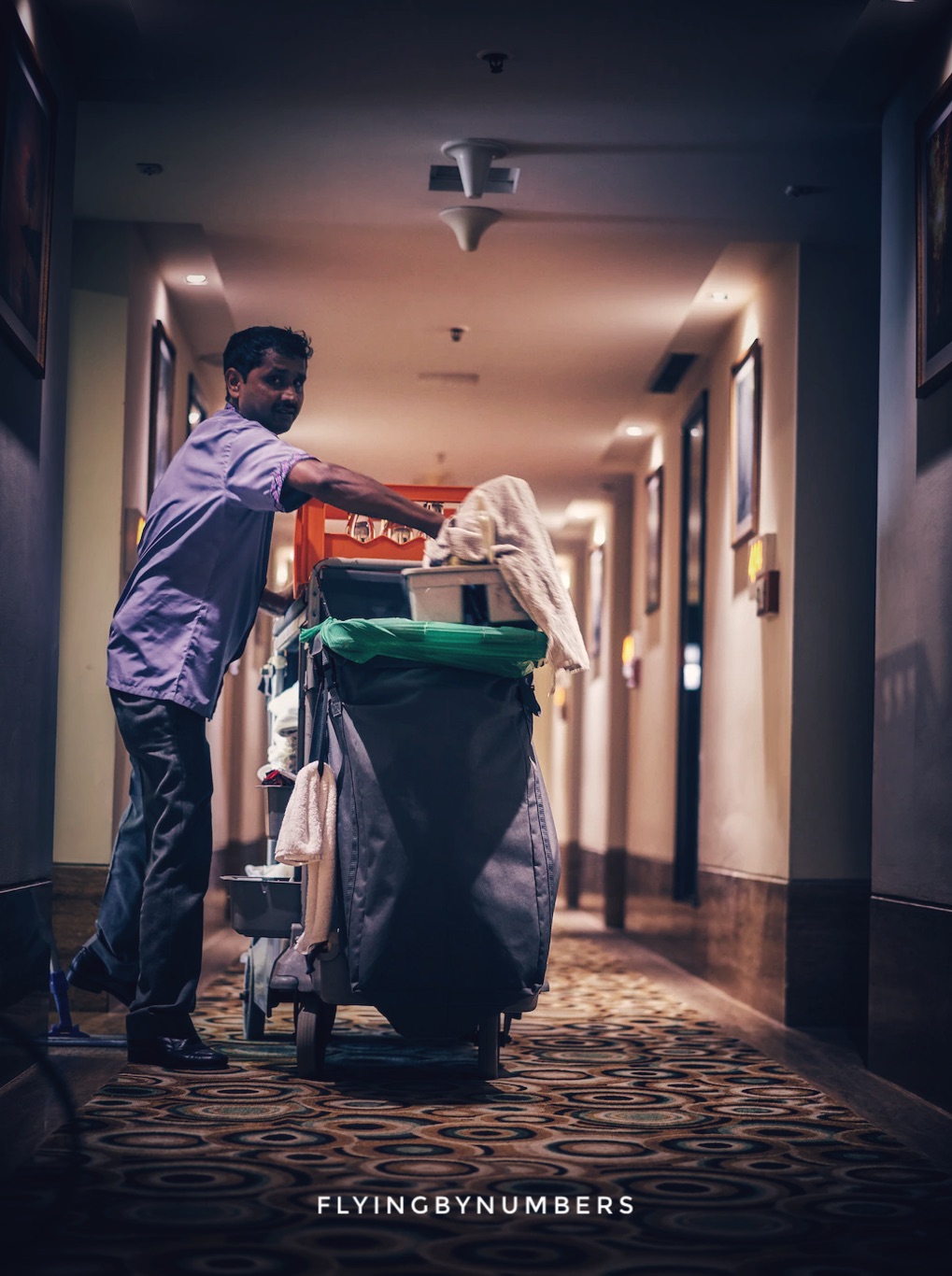
Sleep quality
Unlike holiday hotels, flight attendants are less interested in the swimming pool or excellent concierge service, and far more interested in things like blackout blinds!
Many airlines will have strict regulations on sleep quality, but these regulations are often enforced by the airline unions themselves. At most major airlines, union’s look-out for their members by vetting hotels on behalf of the airline, ensuring that their pilots and cabin crew will manage to get a sufficient rest when they are away from home.
Rules range from only booking rooms located away from elevators and noisy roads, to having a minimum decibel rating for air conditioning noise in each room.
Cost
Once all the other boxes have been ticked, the ultimate decision that makes airlines choose one hotel for their crew over another is cost. Airlines run on slim margins, and continually fight a battle between the hotels, transport companies, and flight attendant and pilot unions.
As a result, the chosen hotel is frequently the one that provides the best value for money. This might be anything from providing complimentary breakfasts or airport transfers, to offering special rates for last-minute flexibility.
Of course, this does not mean that airline crew are always staying in the cheapest hotels! With many spending the equivalent of several months each year away from home, most airlines recognise that their employees need and deserve a little luxury in their lives.
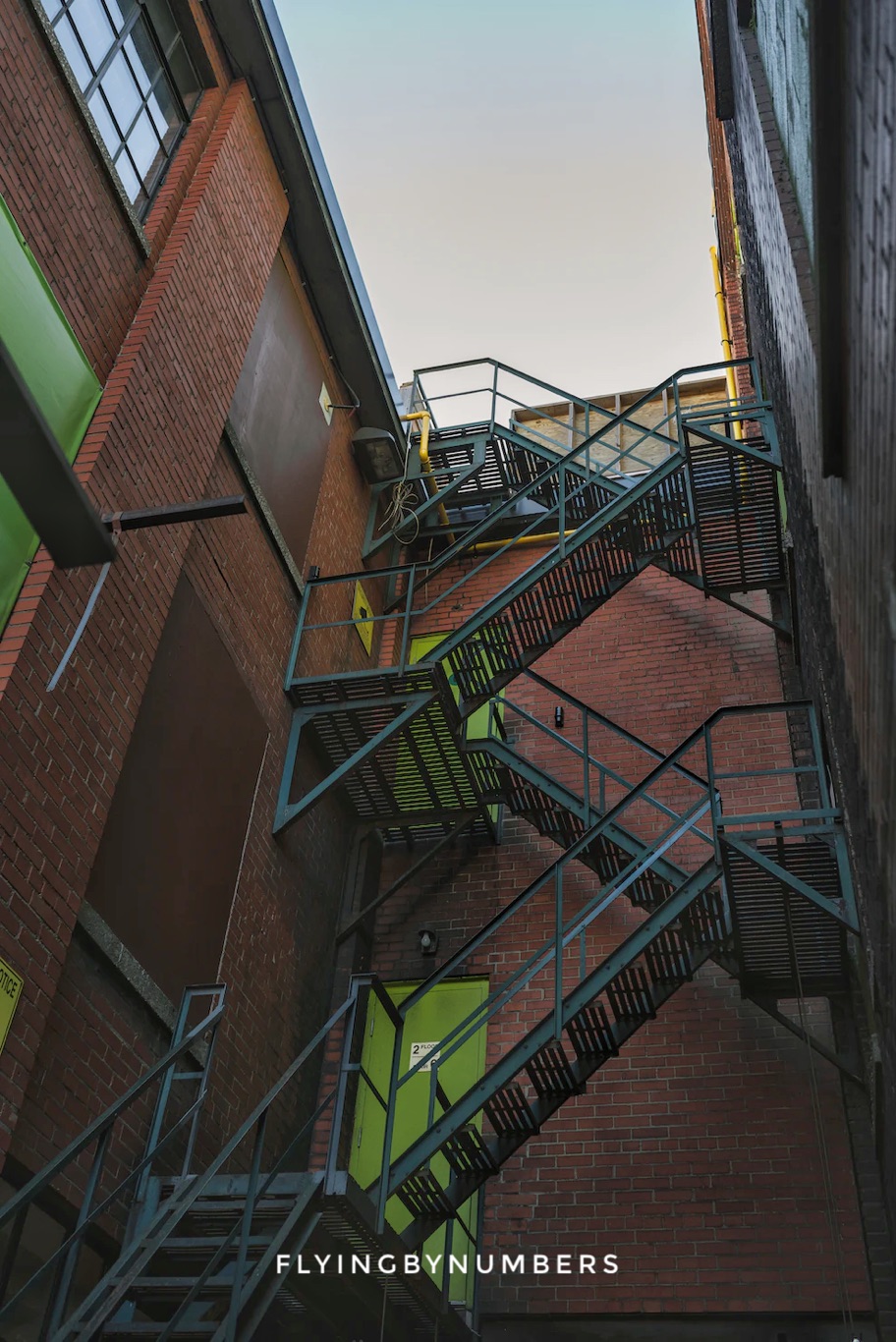
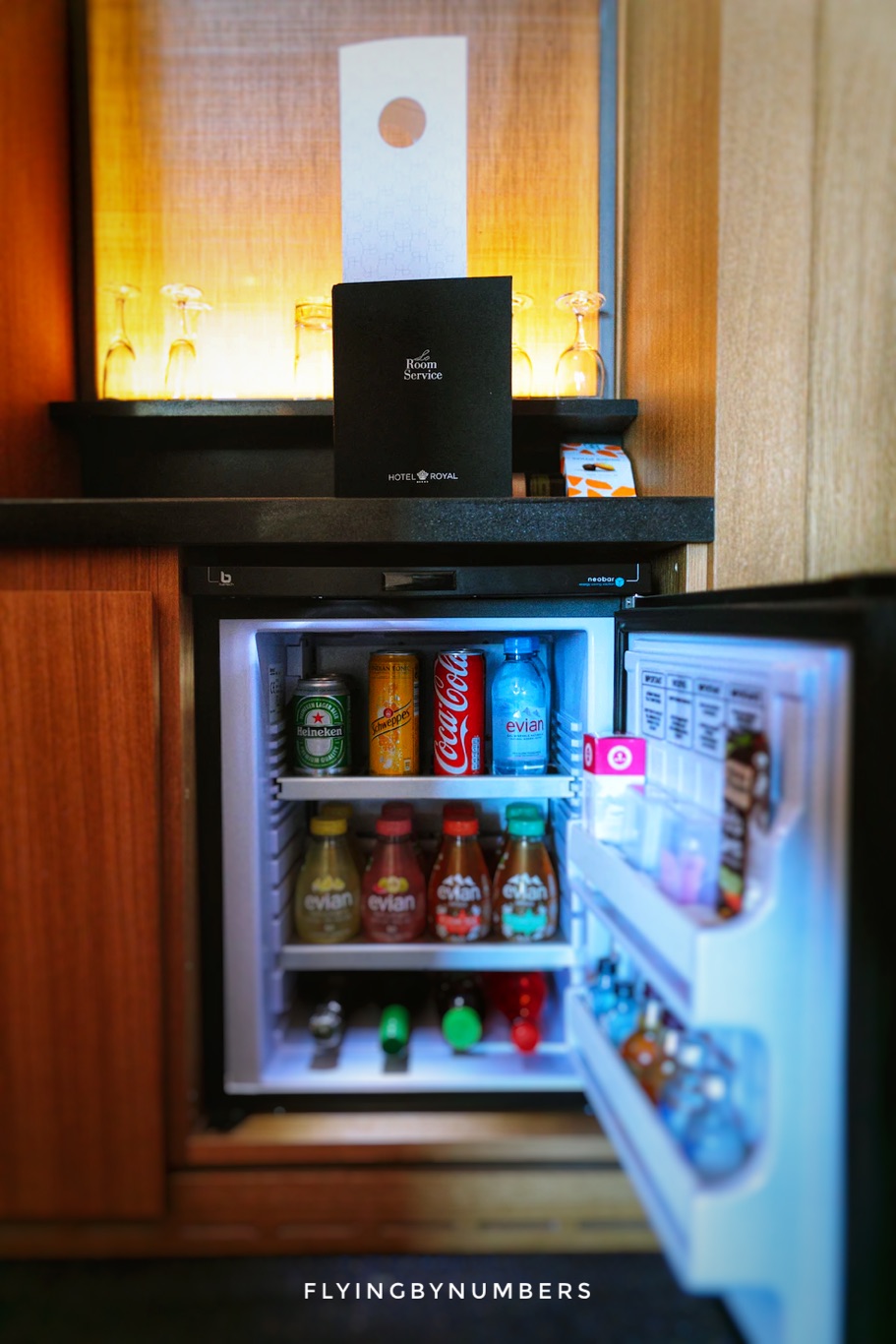
Flight attendant hotel FAQ
No. Flight attendants do not typically pay for their own hotel rooms. All hotels are booked and paid for by the airline in advance.
That doesn’t mean everything is included, and typically airlines book a room-only rate. Flight attendants usually receive an allowance — known as a per diem — to cover meals and hotel incidentals, when they are away on a trip.
At some private-jet companies, and for unscheduled hotel stays at smaller airlines, some flight attendants may end up having to pay for a hotel room last minute. However, this will be reimbursed by the airline once they return home.
Pilot and cabin crew rostering is complex, and as a result of last-minute changes, it can be difficult to guarantee that two people will never have to share a room. However, airlines do try to avoid this where possible, and all flight attendants are booked individual rooms.
That doesn’t mean airlines haven’t considered shared hotel rooms for flight attendants! Rumours of airlines wanting to cut costs and double up on rooms have existed for years, but some airlines even went as far as launching trials to explore the idea further. Surprisingly, luxury carrier Emirates was behind one of the first flight attendant room sharing trials!
Yes, typically, pilots and flight attendants do stay in the same hotel. In fact, it is not uncommon for an entire flight crew — everyone from the Captain and First officer, to the Purser and Flight Attendants — to stay together on a trip, sharing transport and hotel bookings.
The main reason for this is convenience. It means that everyone can be close by should something happen with the aircraft or flight schedule, and everyone can share the same crew transport between the hotel and the airport.
However, there are occasions where pilots and flight attendants don’t share hotels. At very busy destinations, it might not be possible to find a hotel large enough to accommodate an entire crew.
On some larger aircraft, such as the A380, there could be to 10 times as many flight attendants onboard as pilots! In these cases, it is not uncommon for pilots and cabin crew to be split between two hotels that are close by.
Summary
Flight attendant hotels are sought through a long and complex vetting process, to provide good quality sleep and rest for airline employees when they are away from home. Airlines have strict requirements for the hotels they use, and these requirements are often enforced by staff union’s on behalf of the airline.
The chosen hotel is frequently the one that provides the airline best value for money, but this does not mean that airline crew always stay in the cheapest hotels! In some locations, seemingly minor details such as the availability of 24-7 room service, or even the security of having keycard lift access, rules out many hotels.
These unique requirements, with airline crew typically only staying for around 24 hours, mean that hotels that flight attendants stay in whilst away from home can be far removed from those you would book for a personal holiday.
While meals aren’t included, flight attendants do not typically pay for their own hotel rooms. All hotels are booked and paid for by the airline in advance. However, flight attendants usually receive an allowance as part of their wage structure, which is a to cover meals and hotel incidentals, when they are away on a trip.
